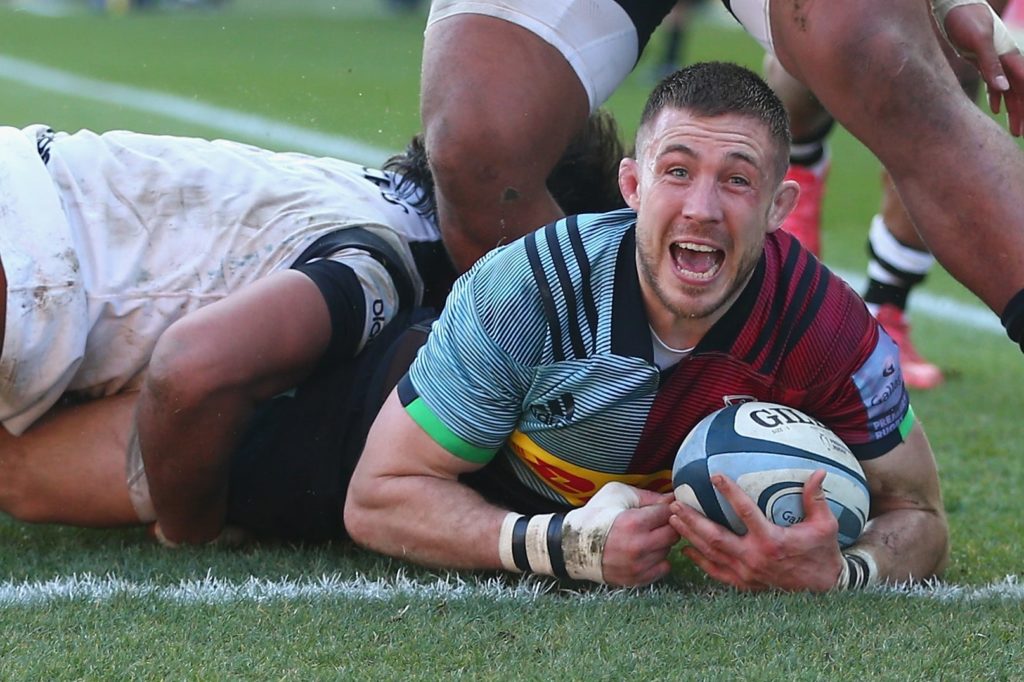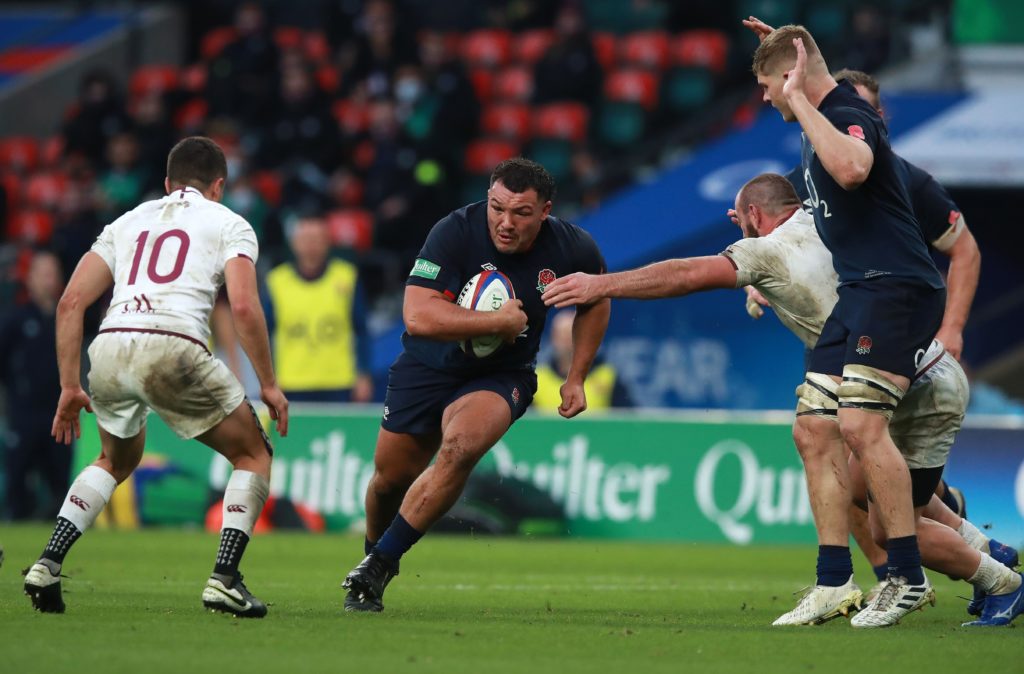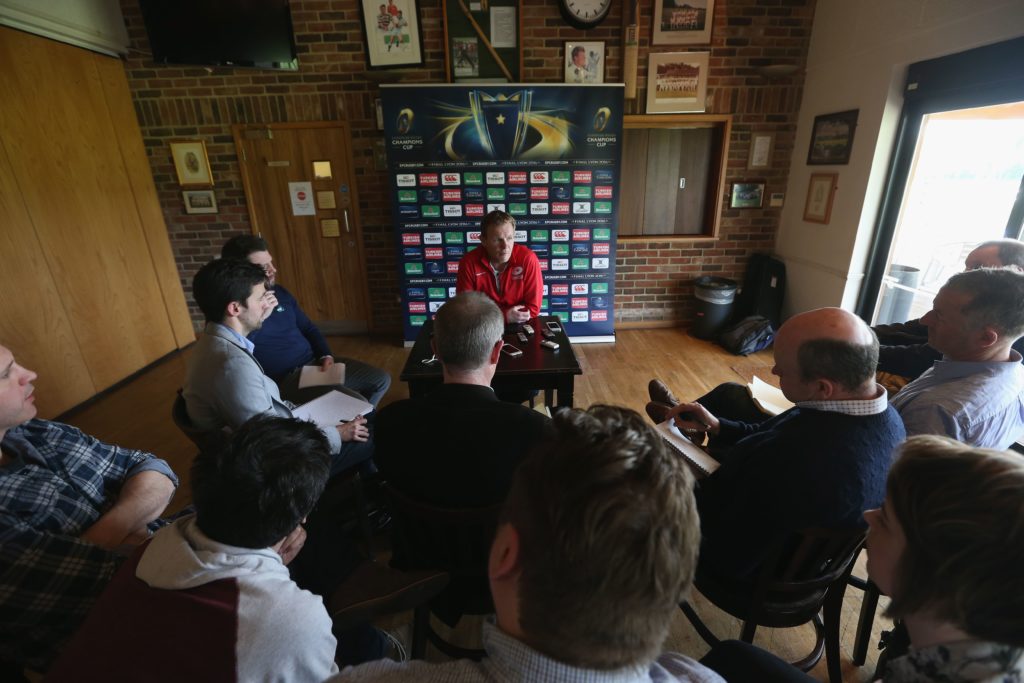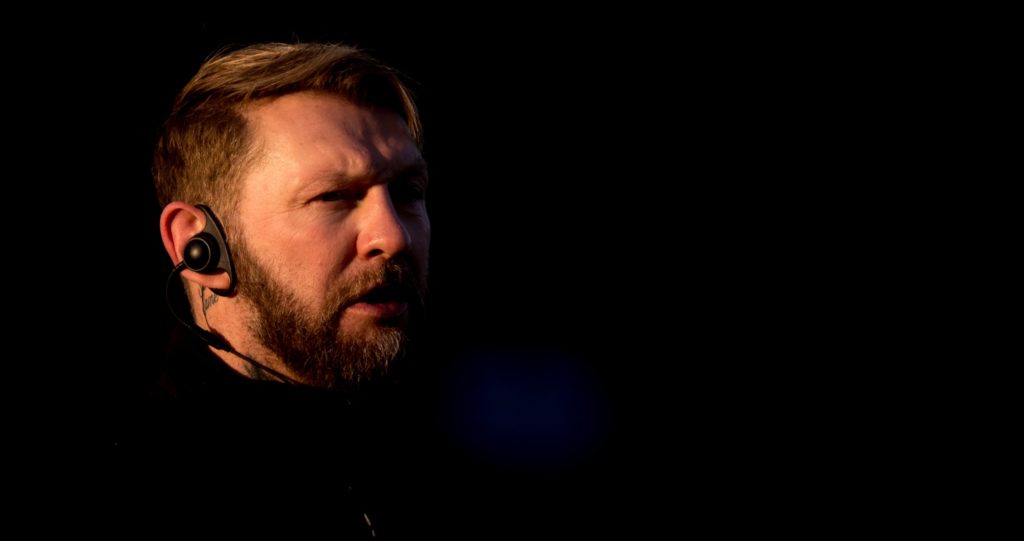It’s a phrase that those working in the media industry are well accustomed to, ‘The Dark Side’. The challenge is that there’s no real clarity as to which side is which – it’s simply a matter of opinion. To the media, it’s the PR gurus; to the PRs, it’s the journos.
It’s the ultimate love-hate relationship. They can’t live with each other, but can’t live without each other. They’re like a bickering old couple, but there’s fundamentally a crucial relationship buried amongst the snappy emails and frustrated phone calls.
Sadly, this relationship is breaking down and this couple is heading for a slow, painful and costly divorce. Both sides are guilty here – and there is work to be done from each of them to bring back the ‘honeymoon period’.
The game we love is crumbling away without our biggest asset – fans – entering through the gates, buying a pie and a pint and chanting to their hearts’ content.
Right now, rugby needs unity. The game we love dearly is crumbling away in front of our eyes without our biggest asset – fans – entering through the gates, buying a pie and a pint and chanting to their hearts’ content.
I have seen first-hand the impact Covid-19 has had on clubs; being made redundant from my role as Comms Lead at Harlequins recently, as part of a significant cost-cutting exercise. It’s devastating to see the strategies many clubs are deploying to merely survive. Fellow Comms Leads, and such good people, have fallen victim to redundancy resulting in less experienced individuals steering the ship. However, I must commend them all in doing a great job despite the challenges they face.
But as we prepare for the start of the Gallagher Premiership campaign, this marriage needs rebuilding. The fractious relationship between the media, clubs and players is more than the impact of coronavirus, it’s an issue of trust stemming back decades – and hardly made better by the tumultuous season we’ve just had.
Ancient Chinese philosopher Laozi got it spot on when he wrote: “He who does not trust enough, will not be trusted.” Trust, without a doubt, is the fundamental issue.

Rarely has an interview been conducted in my entire career without me listening in. Interviews can turn very quickly and result in some unexpected surprises when published.
England’s most-capped full-back, Mike Brown, has himself experienced the negative impact of a ‘spun’ headline when he missed out on a place in the Lions squad.
People read the headlines and then the next minute Warren Gatland is in a press conference answering questions about me, which makes me look bad.
Former England full-back Mike Brown
“I wasn’t picked for the Lions and I was obviously incredibly disappointed,” said Brown. “I had a phone interview and I was saying how disappointed I was, as any player would be. But the headline then became me supposedly slamming Warren Gatland – which I didn’t. Yet, if you read the whole article it’s put into context and not slamming anyone. People read the headlines and then the next minute Warren Gatland is in a press conference answering questions about me, which makes me look bad.”
Whilst the majority of the time no such issues arise, scenarios like this have sadly left their mark on players. Ultimately, even those not guilty are impacted as the trust is breaking down on a broader scale. Brown himself even admitted that “from then on I won’t do phone interviews because I don’t want to be screwed over like that again. But then they moan that I won’t do phone interviews”.
I implemented a procedure at Quins whereby no interview was done without a member of my team either listening to it in real time or recorded. A nifty tool called Blinder proved useful, as all phone interviews were set up and recorded through the system. No numbers were exchanged so media didn’t have players’ details and everything was recorded so we could listen back – or even dial in.
Clubs have a responsibility to engage in conversation with the journalist ahead of an interview, flesh out the details and then thoroughly brief the player, preparing them for any potential challenges. But, whilst doing this, encourage the player to be himself or herself and show their true character whilst the press officer looks after the tricky stuff.
“Everyone says they want characters in rugby but if you don’t give straight-bat answers and answer them like a robot, then you get shot down.
Harlequins stalwart Brown has sadly encountered a number of issues that have stemmed throughout his entire career, with the lack of trust hardly a new phenomenon.
“For a player, you get built up and built up to a level they want you to get to, then they shoot you down suddenly and you’re the worst player being called this, that and the other,” he said.
“Everyone says they want characters in rugby but if you don’t give straight-bat answers and answer them like a robot, then you get shot down. Players don’t have the trust that the media won’t screw you over with a headline, change what you said or put it out of context. When you do try to be yourself, with someone like Ellis Genge, they knock you down. The media want to see your character but then use it against you. Ultimately, you can’t have it both ways.”

Fundamentally, we are all missing the big picture here as the media strive for the grabbing headline and clubs target the coverage. What about the players?
Brown summed it up perfectly when saying: “It can have a detrimental effect on a player’s mental health and well-being and I don’t think the media think about that at times.”
Likewise, there is a responsibility for clubs to take this all into consideration, working with welfare officers and team managers to understand the bigger picture and evaluate if this player is right for this interview.
If the media want us to respect them, they need to respect what we are as people, what we do as a job, what we have to go through every day in terms of pressure.
The 35-year-old now wants to see a shift in the norm and believes that the only way to build this trust is mutual respect, but there is a role for the press officers to do their job and avoid situations like this.
“Having that mutual respect is what’s needed. If the media want players to respect them and what their job is, they need to respect what we are as people, what we do as a job, what we have to go through every day in terms of pressure and not add to it unnecessarily. Players will respect the media, will want to be themselves more and a decent relationship can be built.”
We all wish it was the case that clubs didn’t have to listen in to interviews, but we are some way off that unfortunately. Both sides need to build up that trust first and give the talent the confidence as to what the focus of the interview is.
The Telegraph’s Charlie Morgan recognises what he has found works well and ways to potentially save this marriage: “Above all, journalists appreciate proactivity and authenticity from whoever they are dealing with.
“From media managers, that could mean proposing a post-match interview with a Sunday-night embargo to provide an additional line. It could be revealing a quirky storyline for a feature or setting up an off-the-record briefing from a member of an organisation’s top brass to clarify a tricky situation. The best operators can act as sounding boards for journalists, even in difficult circumstances.
“On the other side of the coin, the vast majority of journalists appreciate the responsibility of telling a story accurately and the fact that interviewees – players, coaches, whoever – are placing a degree of trust in them when answering questions honestly. Everything is smoother when that feeling of trust goes both ways.”

So, working together is exactly what’s needed. Clubs need to put up less red tape, take some risks and be bold, but to do that they need assurances that the media won’t try to catch out the interviewee in an attempt to achieve an eye-catching headline. The only way for this to improve is through:
- Collaboration
- Transparency
- Unity
A world in which the media and press officers are a united front will be a much better place to live in. Covid-19 aside, regular face-to-face interaction should be encouraged where clubs open their doors to the media outside of just the weekly media day and post-match presser.
One idea I had, before my redundancy, was as part of the pre-season media day (a biggie in this world!) to add an element of education for the press. A pre-season briefing delivered by the Comms Lead to the media, setting out the club’s priorities for the next season and tasking the media with generating ideas on how they can work together. Directors of rugby, CEOs and captains should also be a part of this briefing to share their views and hopes for the upcoming campaign.
Clubs should be communicating major campaigns and upcoming priorities with the media, letting them in and sharing this journey with them. These media folk are smart cookies and can form some brilliant ideas. Work together and collaborate. Clubs need to stop keeping being so reserved.
Once these relationships have been improved, what’s to say you can’t then look at further interactions and social gatherings at the clubs? Invite the media down for a bite to eat and a pint with the players and coaches – just to get to know each other. Off the record of course!
The next step is to be transparent. Stop messing each other around. Be honest. If a journalist has a story they want to run, be up front with the press officer. And talking of press officers, they should be open-minded and try to support and develop the idea into a mutually beneficial result.
Has anyone ever asked, ‘What do the players even want?’ This could be the way forward, where the media and players enter this open dialogue in a safe and trusting environment.
Foremost, we want to see an end to any surprise headlines and remember player welfare is at the heart of this. We want more communication, collaboration and better outcomes in return. I might get shot for this, but maybe we should be more like rugby league?

Rugby league may not have the profile that rugby union does in this country – unless you live in Hull or the Wirral – but they are doing something right and we need to learn. The media get the access they need – and generally respect it.
Former Harlequins coach and rugby league icon, Sean Long, despite having only worked in union for about a year, saw the challenges immediately and believes that it again falls down to a lack of trust in this code.
In league, it’s a lot different. There’s a lot more trust with the media guys because if they annoy you then you won’t speak to them again.
Ex-Harlequins coach and rugby league legend Sean Long
“For me, it’s getting a bit like football. I did a piece not long ago and there were things in there that were totally wrong,” said Long. “They spun it a bit and it came out differently to what I said. They make the headlines to get your attention even if it’s nothing you even said.
“In league, it’s a lot different. There’s a lot more trust with the media guys because if they annoy you then you won’t speak to them again. In league you’ll get guys ringing you up because they can and they have your number and if they will ask you to do the piece you’ll say yes. It’s more personal in league, whereas union is more through the club.”
Some key lessons from the soon-to-be Leeds Rhinos assistant coach. Do clubs need to take a step back and open the doors more?
You may have read Sam Peters’ piece on The XV, ‘Seeing the light‘, in which he offers his opinion of the issues from his side. Admittedly, there are some shared viewpoints here. Not sure I personally agree with the supposed standard press officer response that he has suggested, but ultimately there is work to be done to generate exciting and unrestricted coverage but create a safe environment to do so.
Whilst my time in the game has taken a pause, the world keeps operating and a new season is upon us. Unfortunately, I expect that this coming season will continue to see more of this tumultuous marriage between the media and clubs.
Don’t worry though, the divorce lawyers aren’t being called in yet but something drastic needs to happen. Action needs to be taken. Do we need an intervention from the top – perhaps PRL or the RFU? I think that someone needs to make the first move – be that the clubs or the media. Both parties need to communicate more, be transparent and collaborate, before it’s too late.
More Gallagher Premiership stories
If you’ve enjoyed this article, please share it with friends or on social media. We rely solely on new subscribers to fund high-quality journalism and appreciate you sharing this so we can continue to grow, produce more quality content and support our writers.


Comments
Join free and tell us what you really think!
Sign up for free